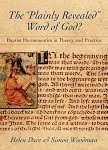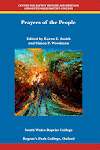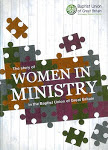Good Friday, 14 April
2017, Bloomsbury Central Baptist Church
Matthew 26.1-5, 46-50; 27.1-2, 23-25, 27-31, 39-44
Crucifixion, by He Qi
we concluded our worship service
with an observation and a challenge.
I’ll start
with some further thoughts about the observation,
and return to the challenge in a few
minutes…
The observation was that if we followed the
story of the last few days of Jesus’ life
through the week we call Holy Week,
we would see
an alliance forming:
an alliance between people who
normally hated each other’s guts;
between people whose distrust of
each other was at such a visceral level,
that in any other week,
the prospect of collusion and collaboration
would seem an
unthinkable option.
And sure
enough, here we are,
on the morning of the day we call
Good Friday,
and the unholy alliance is in place.
It’s all there
in the biblical story,
some excerpts of which we have
already heard this morning:
it’s an
alliance between Zealots and Pharisees,
between simple peasants and Roman
soldiers;
it’s an
alliance between a disillusioned disciple and the Temple hierarchy,
between convicted bandits and
interested onlookers;
it’s even an
alliance between the Jewish King Herod
and the Roman Governor Pilate.
And what is it
that brought these unlikely people together?
Why do we encounter this unexpected
collusion
across barriers of nationality,
social class, and
religious conviction?
What possible
motive could be so powerful
that sworn enemies have united to
pursue it?
I think these
are important questions,
because they take us to the heart of
why Jesus was executed,
and why it matters so much even
today.
But the answer
isn’t obvious.
After all,
even if the crowd had thought
that Jesus was riding into Jerusalem
on Palm Sunday
to incite and armed
rebellion against the Romans,
and even if the only reason they had
cheered him into the city on his donkey
was that they saw him as
a saviour riding in on a charger
to free them from the
yoke of oppression,
they were pretty quickly disabused
of this idea.
Jesus didn’t rally the rebels once he arrived
in Jerusalem,
he didn’t send for soldiers and summon
zealots.
And so, as
disillusioned crowds have done since time immemorial,
the Palm Sunday mob just went home
at the end of the day,
back to their lives,
their families, and their jobs;
to quietly and hopefully await the
next leader to rouse their rabble.
No, even if
Jesus was briefly and mistakenly a
threat on Palm Sunday,
that threat was spent by Sunday
evening,
and this is
surely not enough of a reason for the entire city,
at every level of its
social structure,
to spend the next week machinating
his unlawful execution.
So where did
the plot against Jesus come from?
What provided the motivation for the
events of Good Friday?
Well, I think
it was a desire for peace.
Which may
sound counter-intuitive,
but bear with me on this.
Jerusalem had
been a city living with violence and menace for decades, centuries even…
with an oppressed population living in
the tension
between the Roman
occupation,
their own monarchy.
and their religious
leaders.
Romans, Kings,
and Priests all fought each other for control,
while uniting to contend with
regular outbursts of populist uprising.
The Roman
soldiers patrolled the streets seeking to enforce peace by threat,
the priests sought power and control
by mixing religion with politics,
and the Jewish kings brokered their
survival by appeasing all sides.
It was a
melting pot,
a recipe for regular and predictable
flare-ups
once the flash-point of tension was
reached.
Suddenly, there
would be an explosion of violence,
people would be fighting on the
streets, shouting for change,
but then,
energy expended,
the people would crawl
off to lick their wounds,
and an uneasy peace would return,
until the next time.
And of course,
in common with most people, in most places, most of the time,
most of those living in Jerusalem in
the first century
just wanted to get on with their
lives,
raising their families,
working their jobs,
doing what they wanted
to do.
Even the
Romans wanted peace,
albeit on their terms.
As did the
priests, and the Herods,
albeit on very different terms.
And I think
this human and commendable desire for peace, for an end to violence,
lies behind what happened to Jesus,
as sworn enemies
united to ensure the death
of this relatively helpless,
innocent man.
They were all
seeking peace,
and were trying to achieve it
through the offering up of a scapegoat.
They took all
their anger, frustration, impotence, and violence,
and placed it on a convenient
target,
in the belief that if they could
just rid themselves of Jesus,
he would take their
problems with him to his grave.
And, of
course, it worked. Briefly.
This is why
scapegoating is such a compelling practice.
When people unite around a common
enemy, they are united.
You know the
saying, ‘my enemy’s enemy is my friend’?
Well, that’s the mantra of
scapegoating.
If we all know
who our common enemy is,
then for as long as it takes us to
hunt them down and kill them,
we can set aside, or
otherwise live with,
the tensions that would
normally drive us to turn on one another.
All we need is
a common enemy, and all else will be well.
And, for that
first Holy Week,
Jesus became the common enemy.
But the next
question is, Why?
What was it
about his presence in the city
that made him the focus?
Who or what made
him the scapegoat?
The gospels go
to great lengths to portray Jesus as innocent;
he wasn’t a violent revolutionary,
he didn’t incite people to
rebellion,
in fact, the stories
are at pains to tell us that he was so
innocent,
that he had never even sinned. Not
once, apparently!
If ever a man
didn’t deserve death,
it was Jesus.
He’s the
archetypical ‘innocent man’.
So why was he
killed?
Well here’s
the thing about Jesus,
he systematically refused to play by
the rules.
And if there’s
one thing the world does not know how to deal with,
it’s people who refuse to play by
the rules.
It doesn’t
know what to make of those
who reject the roles they are
supposed to play.
And Jesus was
supposed to be a revolutionary,
it’s what the Messiah was going to
do.
He was
supposed to raise an army,
and overthrow the oppressor,
or at least die a glorious martyr in
the attempt.
But when he
rejected that role,
in favour of another path
altogether,
he set himself
up as a far more threatening figure
than ever he would have been
if he had grabbed a sword and
started hacking at centurions.
Because the
sinless-nonviolence of the path taken by Jesus,
far from colluding with the violent
narrative that everyone expected,
actually called it as a lie.
The path of
Jesus exposed the violent expectations of all sides,
leaving king and peasant alike
vulnerable to their own sinful
desires and hopes.
It was like
Jesus lifted a veil from the souls of the people,
suddenly exposing them to shame
because all could see their ethical
and spiritual nakedness.
Both the
populist hope of a violent solution,
and the sinister violence that lay at
the heart of the regime,
were alike
laid out for all to see.
This is why
they needed him gone.
Not because he was a political
threat to the status quo,
nor because he had
failed to meet the expectations of the people,
but because his sinless nonviolence
had unmasked the sinful
darkness at the heart of his society.
This is the
challenge that Jesus brought,
and this is why they all united to
kill him.
They made him
the scapegoat for those very sins
that his very presence had brought
into the light.
And this is
why the unholy alliance formed,
and it is why the people and the
priests and the ruling elite
conspired together to rid themselves
of the troublesome rabbi from Nazareth.
And we do it
still.
The events of
the death of Jesus didn’t just expose
the corruption of first century
Jewish-Roman society,
They exposed
the darkness that takes root
whenever humans conspire to seek
peace through violence.
The theologian
Walter Wink sums it up for us:
He says that:
The
belief that violence ‘saves’ is so successful
because it doesn’t seem to be mythic
in the least.
Violence
simply appears to be in the nature of things. It’s what works.
It seems inevitable, the last and,
often, the first resort in conflicts.
If a
god is what you turn to when all else fails,
violence certainly functions as a
god.
What
people overlook, then, is the religious character of violence.
It demands from its devotees an absolute
obedience-unto-death.
And Jesus
challenges that assumption.
He did it in
the first century,
and the god of violence fought back,
sending him swiftly to the cross for
daring to speak an alternative truth.
And Jesus
continues to challenge the assumptions of violence today,
and the god of violence continues to
fight back,
trying to condemn those who would speak
unnerving words of peace,
to their own violent
deaths.
Last Sunday I also challenged us to watch the news this
week,
to see if we could find examples of
scapegoating in action,
to see if we could
notice where enemies unite against a common enemy,
who they can hold accountable for
all the wrongs in their lives
and all the ills in
their society,
and whose destruction can seem, at
least for a while,
like
the moment of ultimate salvation.
Did you find
them?
I did.
What do you
think is going on, I wonder, in Egypt,
in Syria, or in Korea?
We identify an
enemy, and we unite to destroy them,
seeking temporary alliances with
sworn enemies,
to save us from the darkness of sin
that lies at the heart of our society.
George Orwell expressed
this in his novel 1984,
where the world is divided into
three power blocks,
and at any given time
two are at war with the third.
It’s just that the ally and the
enemy change places from time to time.
But the
significant thing
is that when they change places,
history is rewritten:
- Today’s ally has always been the ally,
and today’s enemy has always been the enemy.
And those who
threaten the status quo
are neutralised by being aligned
with the enemy.
This deeply
entrenched violence, which lies at the heart of our globalised society,
just as it lay at the heart of the
Roman society of the first century,
is exposed by the life of Jesus,
and it is disarmed
by his death on the cross,
as this ultimate act of violent
destruction
visited
on an innocent man,
reveals the depths of human
sinfulness.
Jesus, you
see, dies for the sins of the Romans,
and he dies for the sins of the
Jews;
he dies for my
sins,
and he dies for your sins.
And he does so
speaking words of forgiveness,
because it is only through this new
path of nonviolent love
that a way emerges that can lead
from darkness to light.
But that’s a
story for another day, for a Sunday that’s coming soon.
Today, however,
we sit at the foot of the cross,
and we do so in humble recognition
of our own sins,
and we do so in
mourning for the sins of the world
that keep bringing us back to this moment
of crucifixion.













